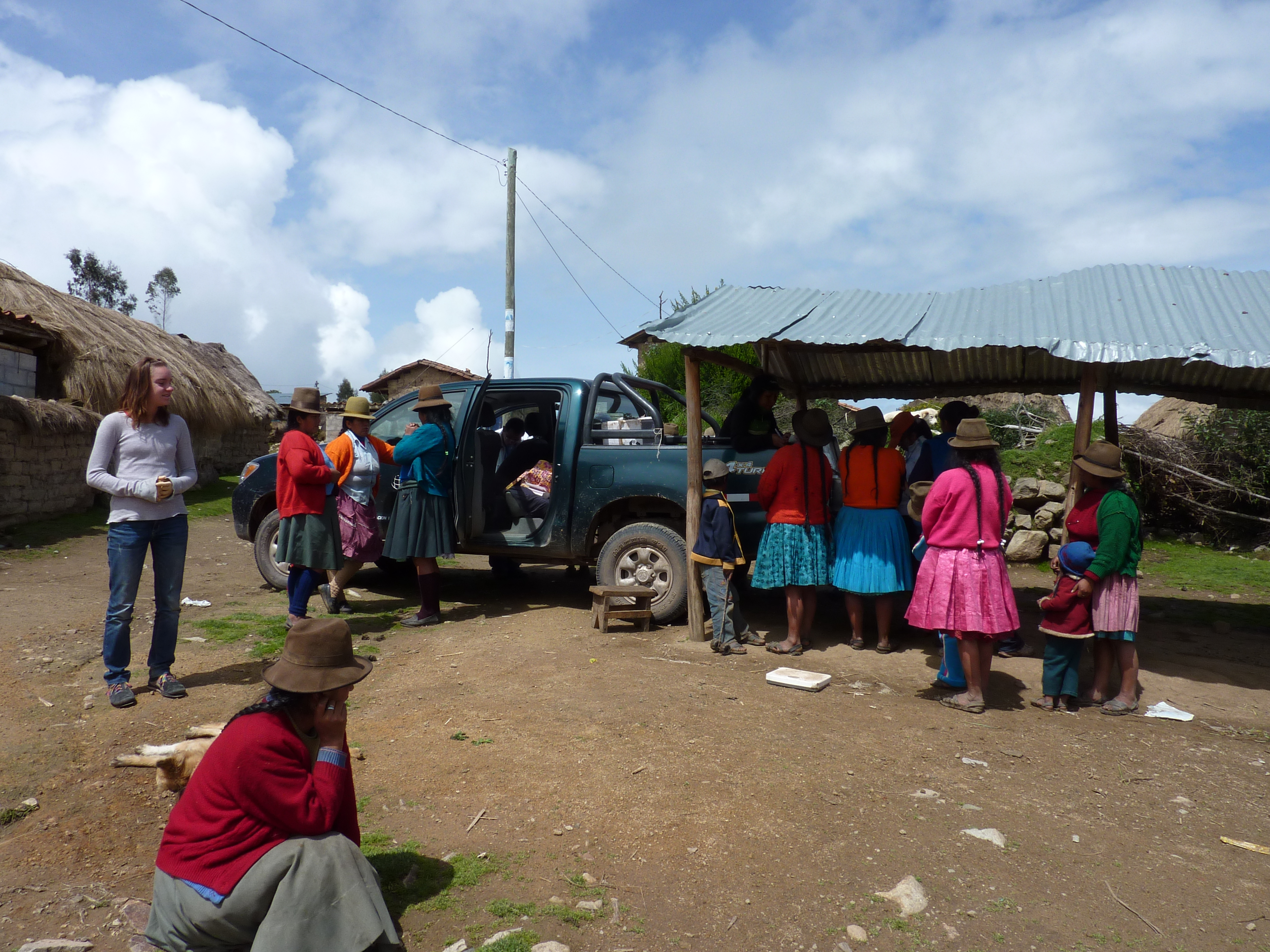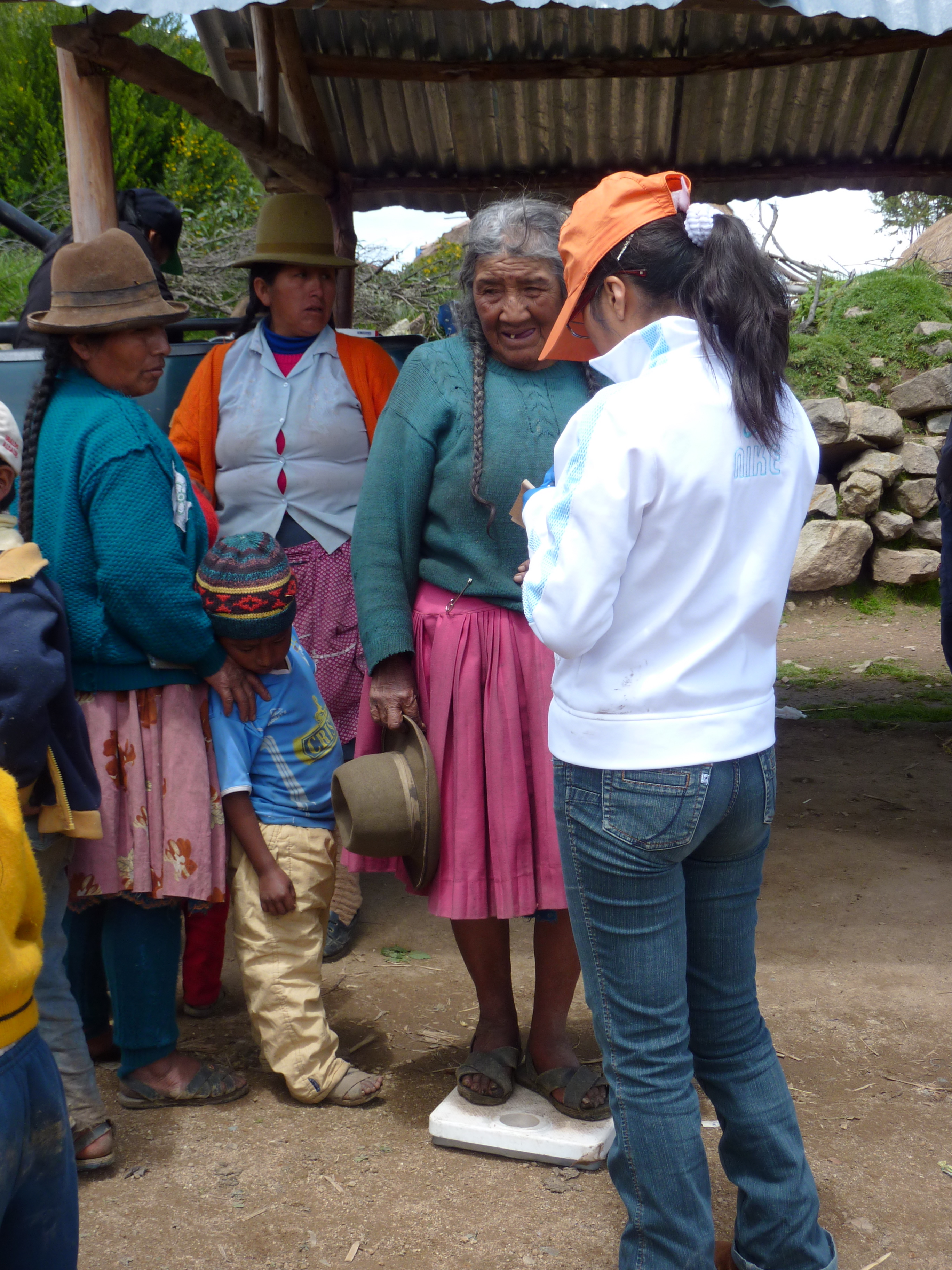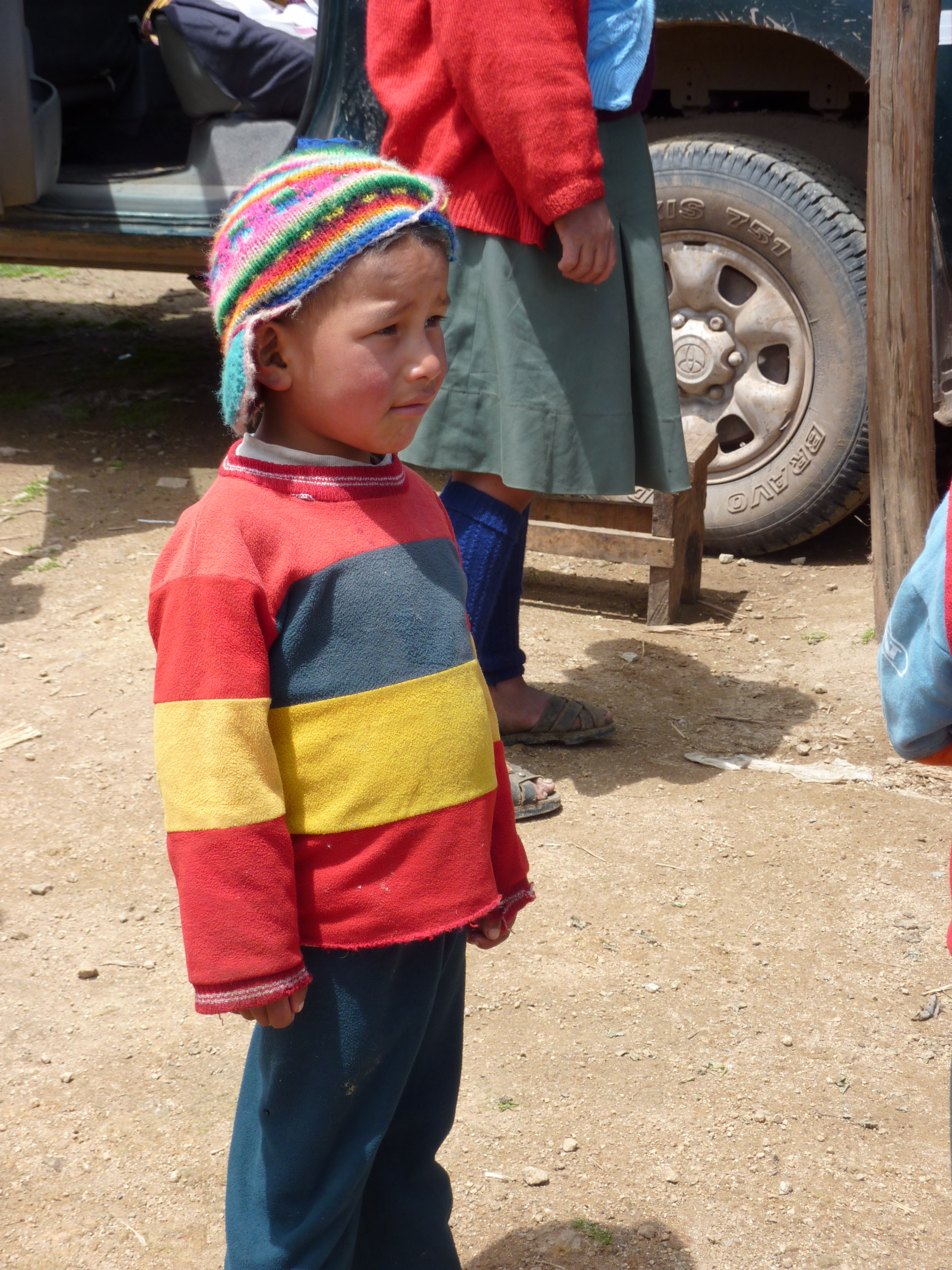1/23/11 Posted by Olga Lemberg, MD (a third year Pediatrics resident from Kaiser Permanente Oakland serving a…
Week 3: Uratary (approx 4000m elevation)
1/23/11
Posted by Amy Mugg, MD (a third year Pediatrics resident from Kaiser Permanente, Oakland serving a global health elective at The Belen Clinic in Cuzco, Peru).
I finally had the opportunity to go with our mobile med team to one of the communities this week. I arrived at the clinic at 7:30am and crammed into the backseat of a pick-up truck cab with 3 other clinic workers. The back of the truck was filled with metal cases containing our supplies for the day. It took approx 2.5 hours to reach Uratary. 1.5 hours of which were on a narrow dirt/rock road that weaved through the stunning vistas of the Andes.
Our arrival to Uratary was announced by some avid honking by our driver. As with most of the trips, someone lost the keys to wherever we were supposed to set up our clinic and we had to make due with just the truck. My “office” was on the left side of the cab and the internist’s was on the right. Our pharmacy was in the truck bed and the “triage” station was just beyond. The patients were triaged by our only Quechua speaking volunteer. After being weighed (adults had their BP checked as well) the age and weight of the child was written on the back of a prescription and handed to me. I saw between 8-10 children between the ages of 3 and 10 who all had one of 2 complaints: itching with rash or not eating/poor growth. Much like in the US, everyone expected a prescription. This wasn’t helped by the fact they were handed a blank prescription with their name and vitals on it at triage. In my arsenol of medicines to choose from for the rash/itching were oral antihistamines, betamethasone cream, and bacitracin ointment. As far as the “not eating, not growing” complaint, my only options was multivitamins. After seeing patients, we were invited to the community president’s house for lunch. We were set up in a 8ft by 6ft hut made with mud bricks and a tin roof. There were 2 small stools and a short bench all about 1 ft above a dirt floor. We were each given a tin plate with 2 hardboiled eggs and there was a central pot filled with boiled potatoes. It was as organic as it gets and delicious after hours of working in the sun.
From a medical provider’s standpoint, I felt a bit hollow after this experience. I’m not used to not having options (ie not being able to send labs for children drastically below the growth norms or select from a wider range of medications for dermatitis). If a child is sick enough in the community we would theoretically bring them back with us in the truck or drive them to the nearest hospital. I guess I’m looking for some elegant solutions where none currently exist.


